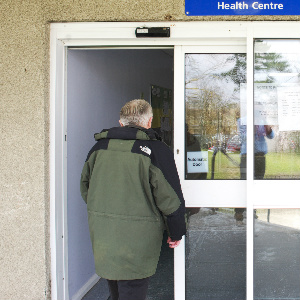Exclusive NHS England will extend funding for its national seven-day GP access pilots to allow ‘fuller analysis’, after admitting that there was insufficient data to measure the success of the scheme ten months into the year-long pilots.
It said it needed more time to gather the evidence to be able to ‘demonstrate success’, adding that early feedback was ‘very good’, including some areas claiming to have achieved a percentage reduction in A&E attendances in the double digits.
NHS England also revealed that there was not as much demand for Sunday access as there was for weekday evening and Saturday appointments.
But the GPC said that pilots were not necessary to demonstrate a lack of demand for Sunday opening, adding that pilots were unable to get off the ground due to a lack of GPs.
The pilots for the ‘Challenge Fund’ – which was a £50m scheme set up in late 2013 by the Prime Minister principally to move towards seven-day opening – were due to begin in April 2014 with funding available for a year, after which CCGs would continue funding the schemes.
The Prime Minister followed this with an announcement in October 2014 that £100m will be provided for a second wave of schemes.
But Pulse revealed last year that most of the original pilots had yet to start last September.
NHS England is now saying that there is insufficient data to judge whether the schemes have been a success so far, and it will increase the funding for the intial wave of pilots.
Related stories
Q&A: The Prime Minister’s Challenge Fund
Practices invited to bid for £100m second wave of extended access funding
An NHS England spokesperson said: ‘The pilots have only been operating for a short period of time and we need longer to get the evidence needed to demonstrate success. However, early feedback from patients, clinicians and managers has been very good…’
‘To achieve further benefit, pilots will continue beyond March 2015 for up to six months and will receive additional NHS England funding to enable further evidence to be gathered. By extending the pilots this will enable a fuller evaluation of the schemes. Together with local CCGs we will work with pilots to identify how the most successful aspects can be taken forward.’
They added: ‘In general pilots are finding demand is greater on weekday evenings and Saturdays, with less demand for Sunday appointments. They are continuing to adapt their offer to meet local patient needs.’
They also said that early feedback on reducing A&E attendances was ‘encouraging’. They added: ‘At present, it seems likely that reductions in the region of 10-15% or more may be achieved by improving access to primary care.’
Although full analysis will be available in the summer, NHS England told Pulse that:
- The Arden, Herefordshire and Worcestershire pilot data indicated A&E attendances reduced by ‘more than 10%’ (three extended access hubs run under the pilot, with the first opened in July and the last in September).
- The North West London, the pilot in one CCG area reported a 10% reduction in daily A&E attendances and a 7% reduction among the over 65s in hospital admissions (offers Satuday and Sunday services).
- A participating practice in Birmingham reported a 25% drop in A&E attendances among its patients in November 2014 compared with November 2013.
- A pilot in South Kent supplying paramedic and GP home visits saw 33% of A&E attendances avoided.
- In Whitby, north Yorkshire, 80% of weekday evening appointments were booked up.
- In Hertfordshire and South Midlands 74% of the 7,000 additional appointments were used.
- In Morecambe, call volumes to the extended access service was at 286 but this had grown to 900 by last month.
But GPC chair Dr Chaand Nagpaul said: ‘It comes as no surprise that there in insufficient evidence of benefit from the 7 day pilots, and we must not repeat the failed experiment of the 7 day Darzi walk in clinics, many which have been decommissioned due to low demand. Neither did it need these pilots to know that there is inadequate demand to see a GP routinely on a Sunday.
‘Several challenge fund sites have yet to get off the ground due to a lack of GPs able to work extra hours, and in many there is no evidence of any reduction in A&E attendances. We must also account for the hundreds of millions of pounds spent on running these pilots in any analysis, rather than looking simply at crude A&E attendance rates.
‘At a time when general practice is struggling with unmanageable workload, a lack of capacity and too few GPs, the priority must be for precious NHS resources to be used to support GPs to meet the needs of patients that need us the most, especially the vulnerable, frail and those with greatest morbidity.’
NHS England’s announcement comes as the scheme has already been awarded an extra £100 million to run a second wave. The successful bidders will be announced in the spring, when NHS England will also reveal how much extra it is spending on the wave one sites.
NHS England had said CCGs will decide what from the pilots they will want to continue to commission after the Challenge Fund investment had run out, because ‘it is obviously in commissioners’ interest to ensure they are investing in the most appropriate services for local people’.
Pulse October survey
Take our July 2025 survey to potentially win £1.000 worth of tokens













